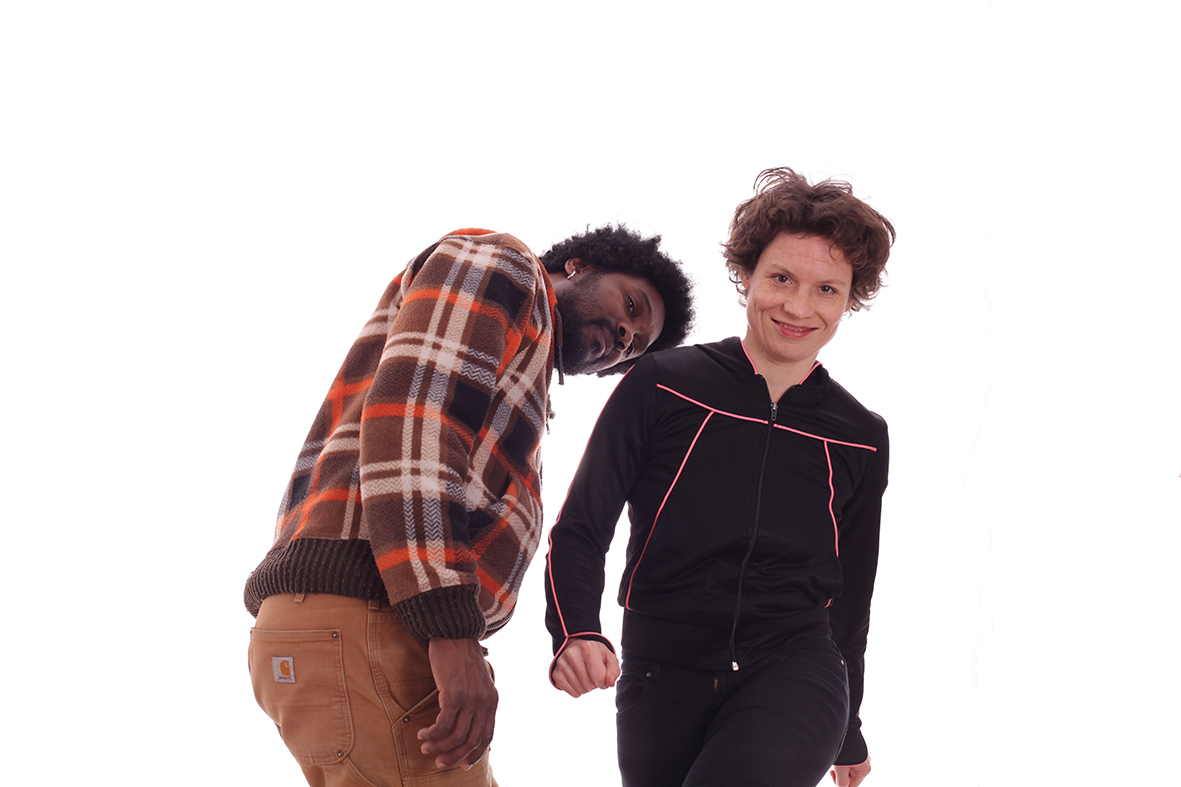PLAN B (Aktivmaterial)
Climate protection also includes “clean” concepts for individual and collective mobility. Lithium-ion batteries already supply our mobile phones and laptops, cordless screwdrivers and toothbrushes with electricity, and they are to be used in electric cars, e-bikes etc. in many more applications. But how clean are these new technologies really? In the Plan B installation, a discarded bicycle, connected to a motor, is the basis for the electricity generator of a mobile charging station. Passers-by* are invited to pedal and, while recharging their mobile phones, to talk about energy generation and how climate-friendly the energy revolution really is.
Location on Friday 24th and Saturday 25th July:
Hospitalhof, Büchsenstr. 33
Location on Sunday 26th July:
Akademie Schloss Solitude courtyard
Freitag, 24. Juli 2020 18:15 – 20:00 Uhr
Podiumsgespräch mit Cathy Plato, Merle Gronewang und Conny Krieger
Mehr Informationen
Die Energiewende ist in aller Munde. Zum offiziellen Klimaschutz gehören neue, „saubere“ Konzepte für individuelle und kollektive Mobilität. Der Bedarf nach elektrischer Energie ist allgegenwärtig und mit ihm sind es die Speicher der Zukunft: Lithium-Ionen-Akkus. Schon jetzt versorgen sie unsere Handys und Laptops, Akkuschrauber und Zahnbürsten mit Strom, sollen aber in Zukunft noch deutlich zahlreicher in Elektroautos, E-Bikes usw. zum Einsatz kommen. Doch wie sauber sind diese neuen Technologien wirklich?
In Zé de Paivas und Kathleen Kunaths Installation ist ein ausgemustertes Fahrrad in eine feste Basis montiert, Pedale und Kette sind mit einem Motor verbunden. Wird nun in die Pedale getreten und die Apparatur zum Laufen gebracht, wird der Motor von dieser mechanischen Tretenergie angetrieben und transformiert sie in Strom. Über installierte Kabel können die Passant*innen mit diesem Strom ihre Handys aufladen. Gleichzeitig läuft auf einem Monitor ein Video, das Bilder zu verschiedensten Aspekten rund um die Lithium-Ionen-Technologie zeigt.
Die Passant*innen sind eingeladen, hier zu verweilen, die Installation zu (be)nutzen, um sich über die Zukunft von Energie auszutauschen und darüber, wie klimafreundlich die Energiewende tatsächlich ist und was sie schon jetzt für Mensch und Natur bedeutet.
Zé de Paiva
Zé de Paiva lives and works as video artist and performer in Berlin. In 2003 he became a member of the Teatro Oficina under the direction of José Celso Martinez Corrêa in São Paulo. From 2009 to 2018 he was a permanent member of the company Grupo Oito as a dancer and video artist. In Ubuntu (Ballhaus Naunynstraße) he linked his body with technical devices: camera and beamer became moving, dancing body organs. His knowledge in dealing with technology and his interest in creating the performance out of interaction with it was even more evident in Cyclops (Ballhaus Naunynstraße). As a director, he placed the camera at the centre of the performance and raised questions about the politics of images, while new rules of appropriation of cameras and images were worked out. Since 2016 he has been working as cameraman and performer with Grada Kilomba on her video installations Illusions Vol. I-III.

Kathleen Kunath
lives and works as video artist and photographer in Berlin. She studied photography at the Folkwang University of the Arts and at the Universidade de São Paulo. In 2017 she worked on Gigo Propaganda’s exhibition Ruhr NOW. The portrait series is based on conversations with various actors in the region. Concise impressions from these conversations were visually reflected back into the cityscape. In addition, Kathleen Kunath worked as a consultant and editing supervisor on the project FILMBUDEN am Tag der Trinkhallen (J.-Y. Kluhs, Interkultur Ruhr), which deals with private film shots from the years 1940-1901. Januar 1970 she developed video projections for four walls for the performance Cyclops (Zé de Paiva, Ballhaus Naunynstraße). In 2019 she was involved in the research project The Search for a Feminist Body – A Movement Archive, funded by the initial funding of the City of Berlin. Since 2018 she has been working as a camera assistant on the video installations Grada Kilomba’s Illusions Vol. II and III.